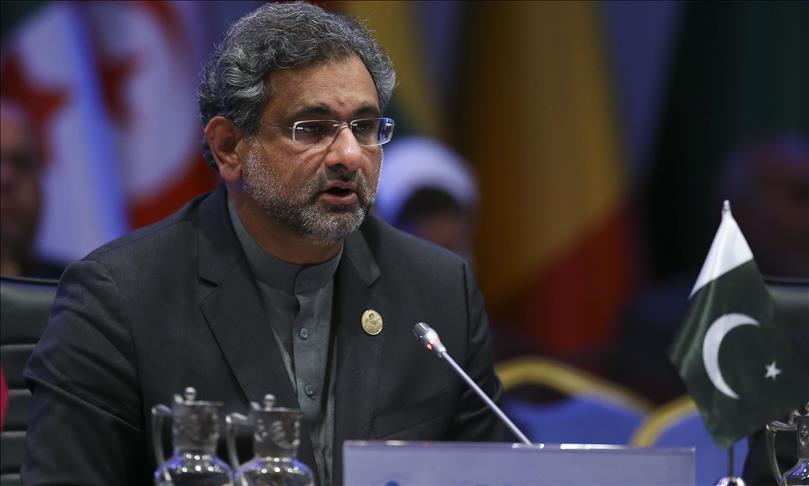
Preparing to head to Kabul, Pakistan’s prime minister reiterated on April 5 his country’s full support for Afghanistan’s efforts to revive the long-stalled peace process with the Taliban.
Shahid Khaqan Abbasi’s remarks came on the eve of his key visit to Afghanistan, which could help ease tensions between the two neighbors. The visit, Abbasi’s first visit since becoming prime minister last year, followed an invitation from Afghan President Ashraf Ghani.
“We stand for peace in Afghanistan,” Abbasi told a counter-terrorism conference in Islamabad.
In Kabul, Abbasi is expected to discuss a range of issues, including how to facilitate talks between Kabul and the Taliban, during the day-long visit on April 6.
Pakistan is under pressure from Kabul and Washington to stop offering safe havens to militants blamed for attacks in Afghanistan, a charge Islamabad denies. Pakistan also insists its influence over the Taliban has been exaggerated.
Pakistan has, however, praised Ghani’s overture to the Taliban in which he offered to recognize the radical religious group as a political party. The offer also said no pre-conditions would be attached to any future peace talks.
The Taliban have not given an official response to the offer but have reiterated their demand to talk to the U.S. before holding talks with the Afghan government.
In January, President Donald Trump lashed out at Pakistan, saying the United States had “foolishly” given Pakistan more than $33 billion in aid over the last 15 years and had gotten nothing in return but “lies & deceit.” Washington later confirmed it is withholding $255 million in U.S. military aid to Pakistan this year.
In Afghanistan, Javid Faisal, deputy spokesman for the chief executive, Abdullah Abdullah, said Pakistan’s support was critical to talks with the Taliban and that Abbasi’s visit would help improve the troubled Afghan-Pakistan relations.
Also in Kabul, Abdul Rahim Ayoubi, a lawmaker from Afghanistan’s southern Kandahar province which is the spiritual heartland of the Taliban, said the Afghan government should be talking to Pakistan’s military intelligence agency, known as the ISI, because it allegedly is able to influence the Taliban.
He said Pakistan’s civilian government has no ability to force the Taliban to come to the table and that “the power in Pakistan is with the ISI.”
At the Islamabad conference on April 5, Abbasi also rejected criticism that Islamabad is not doing enough to curb militant hideouts on its soil and insisted the international narrative against Pakistan is flawed.
“Nobody wants peace in Afghanistan more than Pakistan because we are the most affected” by terrorism, he said.